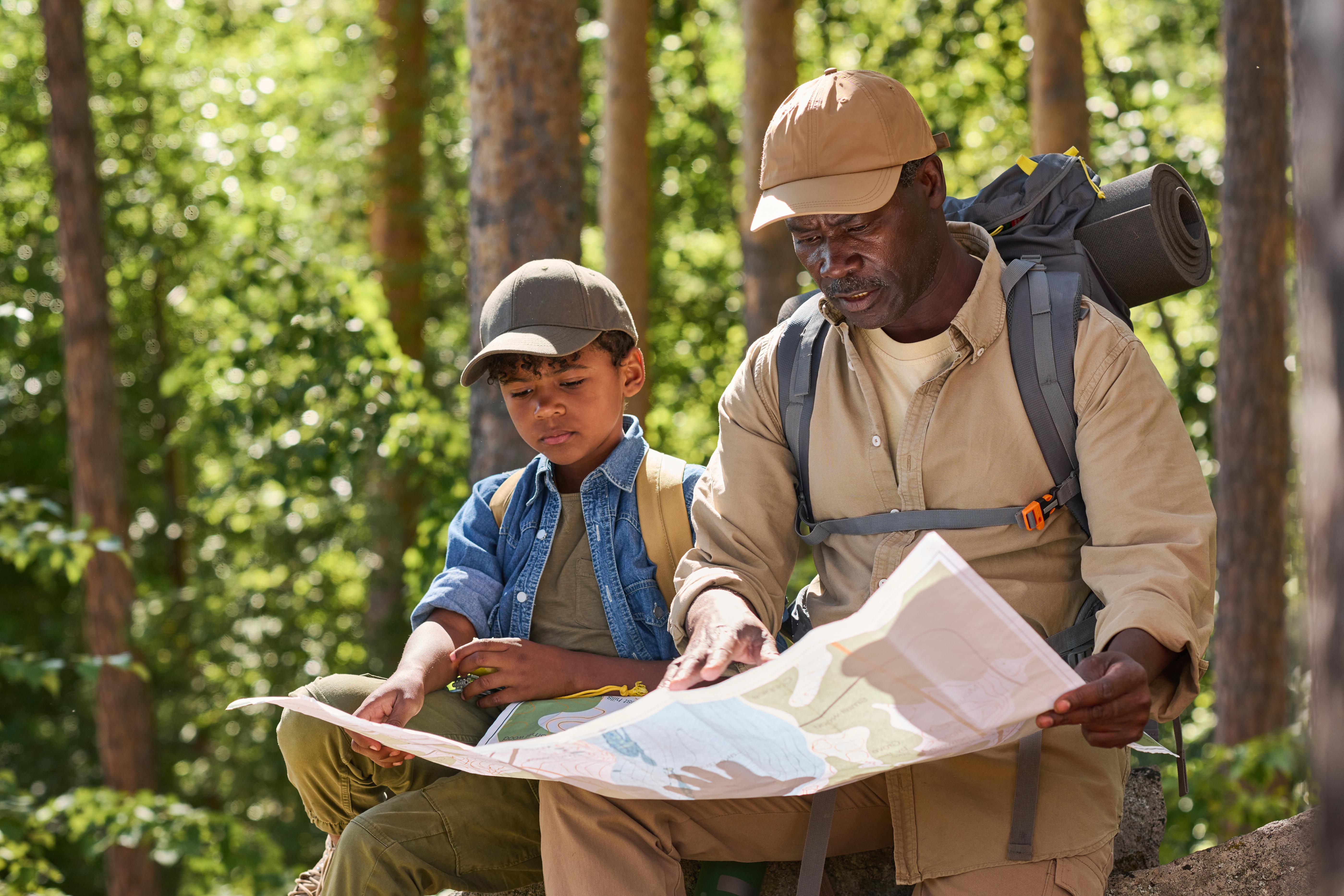Unwritten Rules: 8 Cultural Etiquette Tips Every Traveler Needs to Know
Traveling is more than just visiting new places; it's about immersing oneself in the rich tapestry of cultures, histories, and traditions that define our world. As a traveler, the ability to navigate these cultural landscapes with grace and respect is paramount. The art of cultural navigation is not just about avoiding faux pas but about fostering genuine connections and understanding. This article delves into 8 essential etiquette tips that every traveler should hone to enhance their travel experiences. From understanding local customs to practicing mindful communication, these tips will serve as your compass in the diverse cultural terrains you explore.
1. Research Before You Go

Before setting foot in a new country, it's essential to conduct thorough research on its cultural norms and etiquette. This preparation phase is crucial as it lays the groundwork for respectful and informed interactions. Start by exploring the country's history, major religions, and societal values. Understanding these elements can provide context for the behaviors and customs you will encounter. For instance, in many Asian cultures, the concept of saving face is paramount, influencing social interactions and decision-making processes. Researching local customs can also help you avoid unintentional offenses. Simple gestures, such as a handshake or a nod, can have different meanings in different cultures. In Japan, bowing is a common form of greeting, while in the Middle East, a firm handshake signifies respect. Familiarizing yourself with these nuances can prevent awkward situations and demonstrate your respect for the local culture. Additionally, learning a few basic phrases in the local language can go a long way in building rapport and showing genuine interest in the culture.
2. Dress Appropriately

Clothing is a powerful form of non-verbal communication, and dressing appropriately is a key aspect of cultural etiquette. What is considered acceptable attire in one culture may be deemed inappropriate or disrespectful in another. When traveling, it's important to adapt your wardrobe to align with local customs and expectations. In many conservative societies, modest clothing is expected, especially when visiting religious sites. Covering your shoulders and knees, for instance, is a common requirement in many temples and churches around the world. Understanding the cultural significance of clothing can also enhance your travel experience. In India, wearing traditional attire like a sari or kurta can be seen as a sign of respect and appreciation for the culture. However, it's important to approach this with sensitivity and avoid cultural appropriation. Seek guidance from locals or do thorough research to ensure that your clothing choices are respectful and appropriate. By dressing appropriately, you not only show respect for the local culture but also gain a deeper understanding of its values and traditions.
3. Mind Your Body Language

Body language is a universal form of communication, but its interpretation can vary greatly across cultures. As a traveler, being mindful of your non-verbal cues is essential to avoid misunderstandings and convey respect. In some cultures, direct eye contact is a sign of confidence and sincerity, while in others, it can be perceived as confrontational or disrespectful. For example, in many Asian cultures, maintaining prolonged eye contact is considered impolite, especially when interacting with elders or authority figures. Gestures that are innocuous in one country may carry different connotations elsewhere. The thumbs-up gesture, commonly used to indicate approval in Western countries, can be offensive in parts of the Middle East. Similarly, pointing with your index finger is considered rude in many Asian cultures. Instead, use your whole hand to gesture. Being aware of these cultural differences in body language can help you navigate social interactions more effectively and avoid inadvertently offending your hosts.
4. Respect Local Customs and Traditions

Every culture has its own set of customs and traditions that hold deep significance for its people. Respecting these practices is a fundamental aspect of cultural etiquette and shows your appreciation for the local way of life. Participating in traditional ceremonies or festivals can be a rewarding experience, offering a glimpse into the cultural fabric of a community. However, it's important to approach these events with humility and respect. Seek permission before taking photographs and follow any guidelines provided by your hosts. Understanding the cultural significance of certain practices can also enhance your travel experience. In many Indigenous cultures, rituals and ceremonies are sacred and should be approached with reverence. Educate yourself about the cultural context and significance of these practices to avoid inadvertently disrespecting them. By respecting local customs and traditions, you not only enrich your travel experience but also contribute to the preservation of cultural heritage.
5. Practice Mindful Communication

Effective communication is key to successful cultural navigation, and being mindful of your words and tone is crucial when interacting with people from different cultures. Language barriers can pose challenges, but a respectful and patient approach can bridge these gaps. When communicating with someone who speaks a different language, speak slowly and clearly, and avoid using slang or idiomatic expressions that may be difficult to understand. In many cultures, indirect communication is preferred over direct confrontation. Being aware of these communication styles can help you navigate conversations more effectively. For example, in Japan, people often use subtle cues and indirect language to convey their messages. Pay attention to non-verbal cues and context to fully understand the conversation. Practicing active listening and showing genuine interest in the other person's perspective can foster meaningful connections and enhance your travel experience.
6. Be Open to Learning

Traveling offers a unique opportunity to learn from diverse cultures and broaden your horizons. Approaching your travels with an open mind and a willingness to learn can lead to transformative experiences. Engage with locals and seek out opportunities to learn about their customs, traditions, and way of life. This curiosity not only enriches your understanding of the culture but also fosters mutual respect and appreciation. Being open to learning also means being receptive to feedback and adapting your behavior accordingly. If you make a cultural misstep, acknowledge it gracefully and learn from the experience. Most people appreciate genuine efforts to understand and respect their culture, even if mistakes are made along the way. By embracing a mindset of continuous learning, you can navigate cultural landscapes with greater ease and insight, ultimately enhancing your travel experiences.
7. Show Gratitude and Appreciation

Expressing gratitude is a universally appreciated gesture that transcends cultural boundaries. Whether it's thanking a host for their hospitality or acknowledging a local guide's expertise, showing appreciation can strengthen your connections with the people you meet during your travels. In many cultures, gift-giving is a common way to express gratitude. Consider bringing small, meaningful gifts from your home country as tokens of appreciation for your hosts. Understanding the cultural nuances of gratitude can also enhance your interactions. In some cultures, verbal expressions of thanks are preferred, while in others, a handwritten note or a thoughtful gesture may hold more significance. Pay attention to the cultural context and adapt your expressions of gratitude accordingly. By showing appreciation and gratitude, you demonstrate respect for the local culture and leave a positive impression on the people you encounter.
8. Leave a Positive Impact

As travelers, we have a responsibility to leave a positive impact on the communities we visit. Practicing responsible tourism involves being mindful of your actions and their effects on the local environment and community. Support local businesses, respect natural and cultural heritage sites, and engage in sustainable travel practices. By doing so, you contribute to the preservation of cultural landscapes and support the livelihoods of local communities. Leaving a positive impact also involves being a responsible and respectful guest. Follow local laws and regulations, and be mindful of your environmental footprint. Avoid activities that exploit or harm local communities or wildlife. By approaching your travels with a sense of responsibility and respect, you can create meaningful and lasting connections with the places you visit and leave a positive legacy for future travelers.
Embrace the Journey

Navigating cultural landscapes is an enriching and transformative journey that goes beyond sightseeing. By embracing cultural etiquette and approaching your travels with respect and openness, you can forge meaningful connections and gain a deeper understanding of the world around you. The etiquette tips explored in this article serve as a guide to help you navigate diverse cultural terrains with grace and empathy. As you embark on your travels, remember that cultural navigation is a continuous learning process. Each interaction and experience offers an opportunity to grow and expand your horizons. By embracing the journey and approaching each culture with curiosity and respect, you can create lasting memories and become a more informed and compassionate global citizen.








